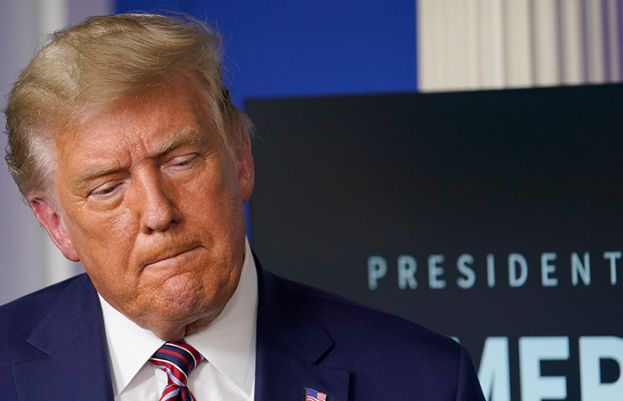
“Free, fair elections are the lifeblood of our democracy. Charges of unfairness are serious. But calling an election unfair does not make it so,” wrote Stephanos Bibas on behalf of a three-judge panel.
“Charges require specific allegations and then proof. We have neither here,” wrote Bibas, who was nominated by Trump.
The Trump campaign and its supporters have tried and failed to convince judges of election irregularities in Michigan, Georgia, Arizona and Nevada, all critical to Biden’s victory.
“Voters, not lawyers, choose the President. Ballots, not briefs, decide elections,” said the appeals court opinion.
“On to SCOTUS!” wrote Jenna Ellis, a Trump campaign attorney, on Twitter after the ruling, referring to a planned appeal to the U.S. Supreme Court. “The activist judicial machinery in Pennsylvania continues to cover up the allegations of massive fraud.”
Pennsylvania certified Biden, who won the state by 80,000 votes, as its winner this week. Under Pennsylvania law, the candidate who wins the popular vote in the state gets all of the state’s 20 electoral votes.
Trump, a Republican, has refused to concede to his Democratic rival and continues to claim, without evidence, widespread voter fraud.
But as his legal challenges to the results fail, Trump said on Thursday he will leave the White House if the Electoral College votes for Biden when it meets on Dec. 14, the closest he has come to conceding the election.
On Monday, Trump’s administration cleared the way Biden to transition to the White House, giving him access to briefings and funding even as Trump vowed to continue fighting the election results.
Biden won the election 306-232 in electoral votes, including Pennsylvania’s 20. Even if Trump overturned the outcome in Pennsylvania, he would still need to reverse the result in at least two other states to remain as president.
TIME RUNNING OUT
While Trump and his supporters continue to wage legal battles, time is running out as states as states have until Dec. 8 to resolve election disputes.
U.S. President Donald Trump speaks to reporters after he participated in a Thanksgiving video teleconference with members of the military forces at the White House in Washington, U.S., November 26, 2020. Erin Scott
Legal experts have said the cases have no chance of success and may be aimed at undermining confidence in the election. Polls have showed a majority of Republicans believe Trump won the election and many believe the election was tainted, despite a lack of evidence.
Soon after Friday’s ruling, Trump posted a video from Newsmax on Twitter about alleged voter fraud in Nevada.
The Trump campaign filed the Pennsylvania case earlier this month, saying that county election officials had treated mail-in ballots inconsistently and asking U.S. District Judge Matthew Brann to halt certification of the results.
Some counties had allowed voters to fix minor deficiencies with their ballots, such as a missing “secrecy envelope,” while others did not.
Brann dismissed the case on Nov. 21, saying the case was based on “strained legal arguments” and “speculative accusations.”
The Trump campaign said it appealed on the “narrow” question of whether Brann improperly refused to let it amend the lawsuit a second time.
The campaign wants to add back allegations it dropped from the case, including a claim that its due process rights were violated.
The appeals court said many of the claims by Trump campaign are matters of Pennsylvania law but noted the campaign already lost on those issues in state court.
“It never alleges that anyone treated the Trump campaign or Trump votes worse than it treated the Biden campaign or Biden votes,” said the opinion. “The campaign’s claims have no merit.”
The other judges on the panel, Brooks Smith and Michael Chagares, were nominated by George W. Bush, a Republican.
No comments:
Post a Comment